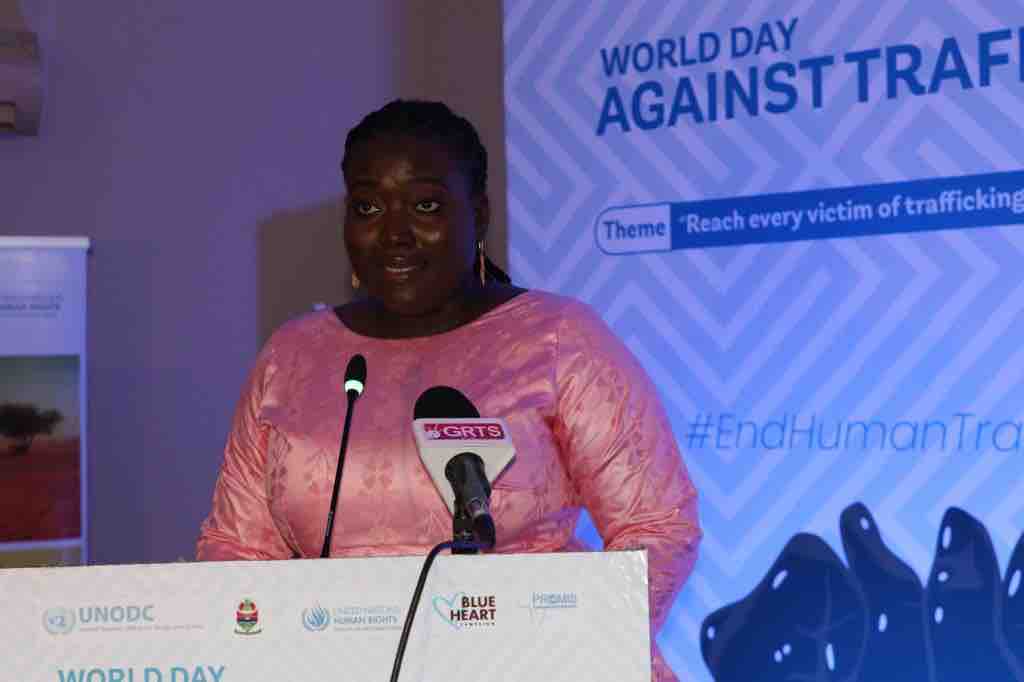By: Nicholas Bass
As part of activities marking World Day Against Trafficking in Persons, the National Agency Against Trafficking in Persons (NAATIP) has recently trained Social and health workers on TIP and the handling of victims.
The training aims to equip health workers with the necessary skills and knowledge to effectively identify, assist, and refer victims of trafficking.
In her opening remark, the Executive Director of NAATIP, Isatou Dabo, said that social workers play a significant role when it comes to psychosocial support. “You need to heal up in your mind before being in a position to accept reintegration and this is where the key role of social workers will come in.”
She pointed out that many times persons who have undergone trafficking or survivors of trafficking may encounter health complications, and if they do not share their experience with their family members they will go to the hospital for a checkup.
Explaining that this makes the role of health workers “very important” for they may be their first point of contact in the event they require a certain type of medical care.
“It is important you understand what the indicators are, know the signs, and if you see certain types of behavior either physical or by the person character, you able to know the type of service to render to them, the treatment to accord them, the types of questions to ask and generally be in the position to address each situation.”
The executive director added that NAATIP cannot do it alone and therefore expressed gratitude to all partners in making this a success, and urged all participants to make the session a very interactive one.
Saikou Ceesay, Legal Officer at the Ministry of Health, added “This training marks a significant step forward in our collective efforts to combat this heinous crime and provide support to those who have suffered its devastating consequences.
“Your role as social and health workers is vital in this collaboration, as you are often at the forefront, engaging directly with vulnerable populations. Thus, your ability to identify and appropriately respond to trafficking situations can have a profound impact on the lives of countless individuals.”
Ousman George Badgie, National Officer Migration Management Unit IOM also said the training will ensure that social and health workers have increased capacity to deliver quality and timely support services to victims.




